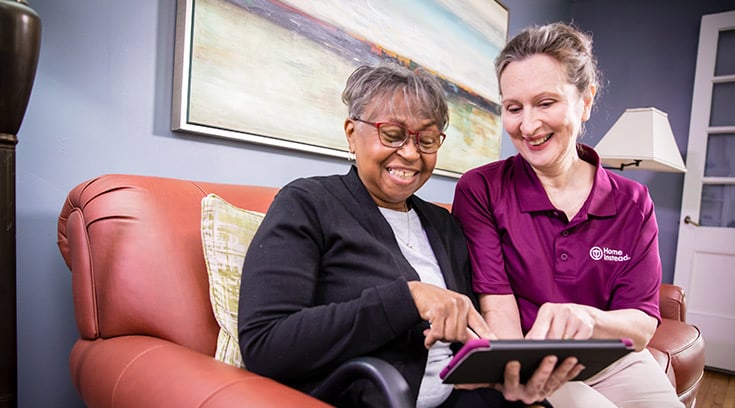Before getting a diagnosis, it is important to understand the 10 signs of cognitive impairment. Some symptoms of dementia can mirror symptoms of other, treatable conditions, so it’s important to make an appointment with a medical professional for further evaluation.
The following steps can help guide you on the diagnosis journey.
Step 1: Know the 10 Signs
According to the Alzheimer’s Association, the most common dementia-related symptoms of Alzheimer’s disease include:
- Memory loss that disrupts daily life
- Difficulty completing familiar tasks
- Challenges with planning and problem solving
- Confusion with time and place
- Trouble understanding visual images and spatial relationships
- Problems with speaking and writing
- Misplacing things and losing the ability to retrace steps
- Decreased or poor judgment
- Withdrawal from work or social activities
- Changes in mood or personality
Step 2: Talk to Your Doctor
If you recognize any of the 10 signs, the next recommended step is to call your primary care doctor. While he or she will be an important part of your care team, a primary care doctor may refer you to specialists to determine the cause of your symptoms. According to the National Institute on Aging, neurologists generally have the expertise to diagnose dementia, although other specialists may also be skilled in making a diagnosis. Members of your care team may include cognitive neurologists, neuropsychologists, psychologists, psychiatrists, and geriatricians.
- Call your primary care physician
- Discuss your concerns with your doctor and ask for an objective
- Assessment will take place to detect cognitive impairment
Enlist the help of community resources:
- Alzheimer’s Association
- Remember for Alzheimer’s Facebook Community
- Annual Medicare Wellness Visit. Did you know your free Annual Medicare Wellness Visit (AWV) includes a Cognitive Impairment Assessment?
Importance of Early Detection
Being proactive with your health by requesting the assessment can lead to many positive outcomes:
- Understanding the cause and treating the underlying disease or health condition.
- Emphasis can be put on treatment, reducing symptoms and care, rather than searching for a diagnosis.
- Allows for the person and their family/significant others to have important conversations about the person’s wishes and their future care.
Gives the person and their family time to plan or create advance directives. - Allows time for the person to assemble a care team that can help with medical, legal, financial and safety concerns.
- Provides the opportunity for disease education and community support, such as the joining of a support group.
- May allow for access to research and clinical trials.
Person-Centered Dementia Care
Home Instead Care Professionals are trained using a one-of-a-kind protocol for Alzheimer’s and other dementias. Our person-centered approach honors your loved one and preserves their dignity.




